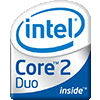
Qualcomm Snapdragon 429 Benchmark, Test and specs
Last updated:
The Qualcomm Snapdragon 429 is a 4 core processor. It can process 4 threads concurrently and is based on the 4. gen of the Qualcomm Snapdragon series. The processor was released in Q3/2018. The Qualcomm Snapdragon 429 scores 167 points with one CPU core in the Geekbench 5 benchmark. When using all CPU cores, the result is 558 points.

| Name: | Qualcomm Snapdragon 429 |
|---|---|
| Family: | Qualcomm Snapdragon (102) |
| CPU group: | Qualcomm Snapdragon 429 (1) |
| Architecture: | Cortex-A53 |
| Segment: | Mobile |
| Generation: | 4 |
| Predecessor: | -- |
| Successor: | -- |
CPU Cores and Base Frequency
The 4 CPU cores of the Qualcomm Snapdragon 429 clock with 1.95 GHz. The number of CPU cores and the clock frequency of the processor are largely responsible for the overall performance.
| CPU Cores / Threads: | 4 / 4 |
|---|---|
| Core architecture: | normal |
| Cores: | 4x Cortex-A53 |
| Hyperthreading / SMT: | No |
|---|---|
| Overclocking: | No |
| Frequency: | 1.95 GHz |
| Turbo Frequency (1 Core): | -- |
| Turbo Frequency (4 Cores): | -- |
Artificial Intelligence and Machine Learning
Processors with the support of artificial intelligence (AI) and machine learning (ML) can process many calculations, especially audio, image and video processing, much faster than classic processors. Algorithms for ML improve their performance the more data they have collected via software. ML tasks can be processed up to 10,000 times faster than with a classic processor.
| AI hardware: | Qualcomm AI engine |
|---|---|
| AI specifications: | Hexagon 536 |
Internal Graphics
With the Qualcomm Adreno 504, the Qualcomm Snapdragon 429 has an build in graphic solution. It has -- SM processors, which have a total of -- texture shaders. The iGPU not only enables games, but also significantly accelerates video playback.
| GPU name: | Qualcomm Adreno 504 |
|---|---|
| GPU frequency: | 0.50 GHz |
| GPU (Turbo): | 0.50 GHz |
| Compute units: | -- |
| Shader: | -- |
| Hardware Raytracing: | No |
| Release date: | Q2/2018 |
| Max. displays: | 0 |
|---|---|
| Generation: | 5 |
| Direct X: | 11 |
| Technology: | 12 nm |
| Max. GPU Memory: | -- |
| Frame Generation: | No |
Hardware codec support
Processors that have an integrated graphics can play videos faster and more efficiently. This can have a positive effect on the battery life of notebooks, for example.
| h265 / HEVC (8 bit): | Decode |
|---|---|
| h265 / HEVC (10 bit): | No |
| h264: | Decode / Encode |
| VP8: | No |
| VP9: | No |
| AV1: | No |
|---|---|
| AVC: | No |
| VC-1: | Decode |
| JPEG: | Decode / Encode |
Memory & PCIeThe Qualcomm Snapdragon 429 supports up to 4 GB memory in up to 2 (Dual Channel) memory channels. This results in a maximum memory bandwidth of 8.5 GB/s. |
|
| Memory type: | Memory bandwidth: |
|---|---|
| LPDDR3-1066 | 8.5 GB/s |
| Max. Memory: | 4 GB |
| Memory channels: | 2 (Dual Channel) |
| ECC: | No |
| PCIe: | |
| PCIe Bandwidth: | -- |
Thermal ManagementWith the TDP, the processor manufacturer specifies the cooling solution required for the processor. The Qualcomm Snapdragon 429 has a TDP of . |
|
|---|---|
| TDP (PL1 / PBP): | |
| TDP (PL2): | -- |
| TDP up: | -- |
| TDP down: | -- |
| Tjunction max.: | -- |
Technical details
The Qualcomm Snapdragon 429 has a 0.00 MB large cache. The processor is manufactured in 12 nm. Modern production increases the efficiency of the processor.
| Technology: | 12 nm |
|---|---|
| Chip design: | Chiplet |
| Socket: | -- |
| L2-Cache: | -- |
| L3-Cache: | -- |
| AES-NI: | No |
| Operating systems: | Android |
| Virtualization: | None |
|---|---|
| Instruction set (ISA): | Armv8-A (64 bit) |
| ISA extensions: | -- |
| Release date: | Q3/2018 |
| Release price: | -- |
| Part Number: | SDM429 |
| Documents: | Technical data sheet |
Rate this processor
Benchmark results

The benchmark results for the Qualcomm Snapdragon 429 have been carefully checked by us. We only publish benchmark results that have been created by us or that have been submitted by a visitor and then checked by a team member. All results are based on and fullfill our benchmark guidelines.
Geekbench 5, 64bit (Single-Core)
Geekbench 5 is a cross plattform benchmark that heavily uses the systems memory. A fast memory will push the result a lot. The single-core test only uses one CPU core, the amount of cores or hyperthreading ability doesn't count.

|
AMD Sempron 3850
4C 4T @ 1.30 GHz |
||

|
Intel Atom E3827
2C 2T @ 1.75 GHz |
||
|
|
HiSilicon Kirin 655
8C 8T @ 2.12 GHz |
||
|
|
Qualcomm Snapdragon 429
4C 4T @ 1.95 GHz |
||

|
MediaTek Helio P35
8C 8T @ 2.30 GHz |
||

|
AMD E2-6110
4C 4T @ 1.50 GHz |
||

|
MediaTek Helio G35
8C 8T @ 2.30 GHz |
||
Geekbench 5, 64bit (Multi-Core)
Geekbench 5 is a cross plattform benchmark that heavily uses the systems memory. A fast memory will push the result a lot. The multi-core test involves all CPU cores and taks a big advantage of hyperthreading.

|
Intel Celeron 1007U
2C 2T @ 1.50 GHz |
||

|
Intel Core2 Duo E6420
2C 2T @ 2.13 GHz |
||

|
AMD A4-4020
2C 2T @ 3.40 GHz |
||
|
|
Qualcomm Snapdragon 429
4C 4T @ 1.95 GHz |
||

|
Intel Pentium E2210
2C 2T @ 2.20 GHz |
||

|
Intel Atom x5-Z8300
4C 4T @ 1.84 GHz |
||

|
Intel Celeron N2910
4C 4T @ 1.60 GHz |
||
AnTuTu 8 Benchmark
The AnTuTu 8 Benchmark measures the performance of a SoC. AnTuTu benchmarks the CPU, GPU, Memory as well as the UX (User Experience) by simulating browser and app usage. AnTuTu can benchmark any ARM CPU that runs under Android or iOS. Devices may not be directly compareable if the benchmark has been performed under different operating systems.
In the AnTuTu 8 benchmark, the single-core performance of a processor is only slightly weighted. The evaluation consists of the multi-core performance of the processor, the speed of the RAM and the performance of the internal graphics.
In the AnTuTu 8 benchmark, the single-core performance of a processor is only slightly weighted. The evaluation consists of the multi-core performance of the processor, the speed of the RAM and the performance of the internal graphics.

|
MediaTek Helio X23
10C 10T @ 2.30 GHz |
||

|
Qualcomm Snapdragon 439
8C 8T @ 1.95 GHz |
||

|
Qualcomm Snapdragon 450
8C 8T @ 1.80 GHz |
||

|
MediaTek Helio X20
10C 10T @ 2.10 GHz |
||

|
MediaTek Helio A20
4C 4T @ 1.80 GHz |
||
|
|
Qualcomm Snapdragon 429
4C 4T @ 1.95 GHz |
||

|
MediaTek Helio A22
4C 4T @ 2.00 GHz |
||
Estimated results for PassMark CPU Mark
Some of the CPUs listed below have been benchmarked by CPU-monkey. However the majority of CPUs have not been tested and the results have been estimated by a CPU-monkey’s secret proprietary formula. As such they do not accurately reflect the actual Passmark CPU mark values and are not endorsed by PassMark Software Pty Ltd.

|
Intel Core2 Duo E7200
2C 2T @ 2.53 GHz |
||

|
Samsung Exynos 7870
8C 8T @ 1.60 GHz |
||

|
Intel Atom C2538
4C 4T @ 2.40 GHz |
||
|
|
Qualcomm Snapdragon 429
4C 4T @ 1.95 GHz |
||

|
Intel Pentium E5400
2C 2T @ 2.70 GHz |
||

|
AMD Athlon II X2 215
2C 2T @ 2.70 GHz |
||

|
Intel Celeron 1037U
2C 2T @ 1.80 GHz |
||
Benchmarks

Geekbench 5 (SC)
2,488 entries
2,488 entries

Geekbench 5 (MC)
2,461 entries
2,461 entries

AnTuTu 8 Benchmark
118 entries
118 entries

PassMark CPU-Mark
2,392 entries
2,392 entries
Popular comparisons
back to index








